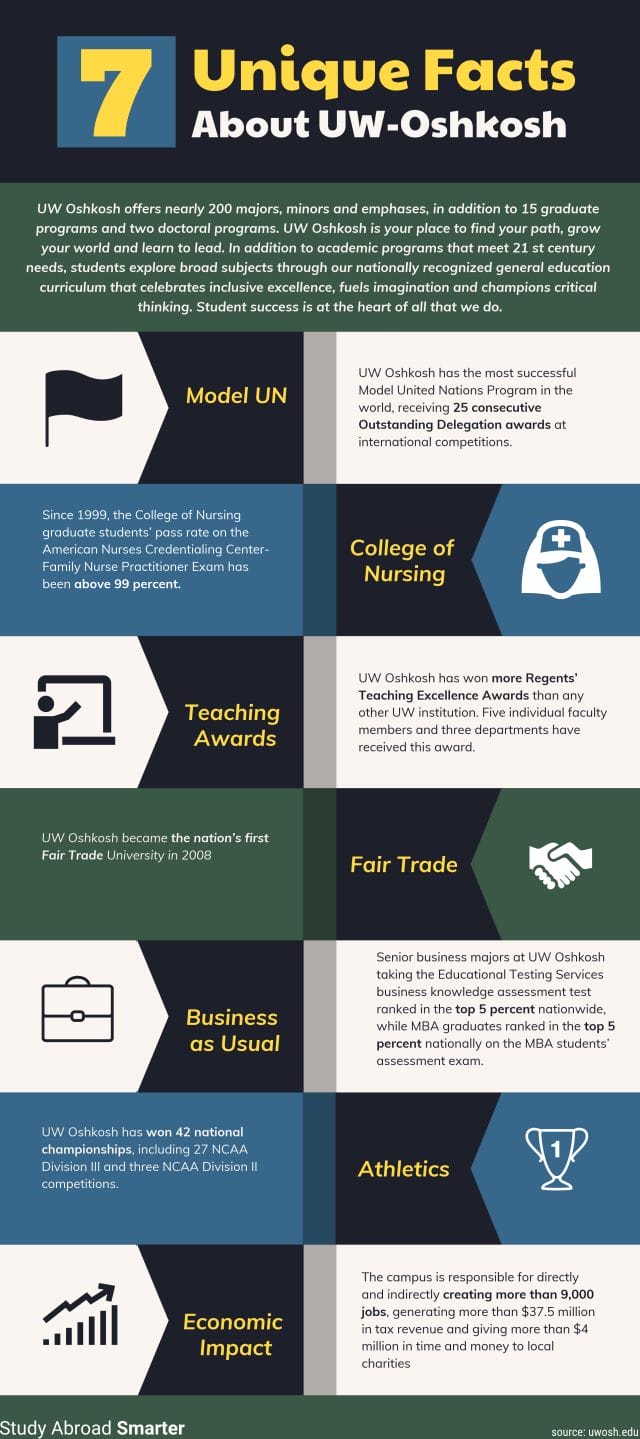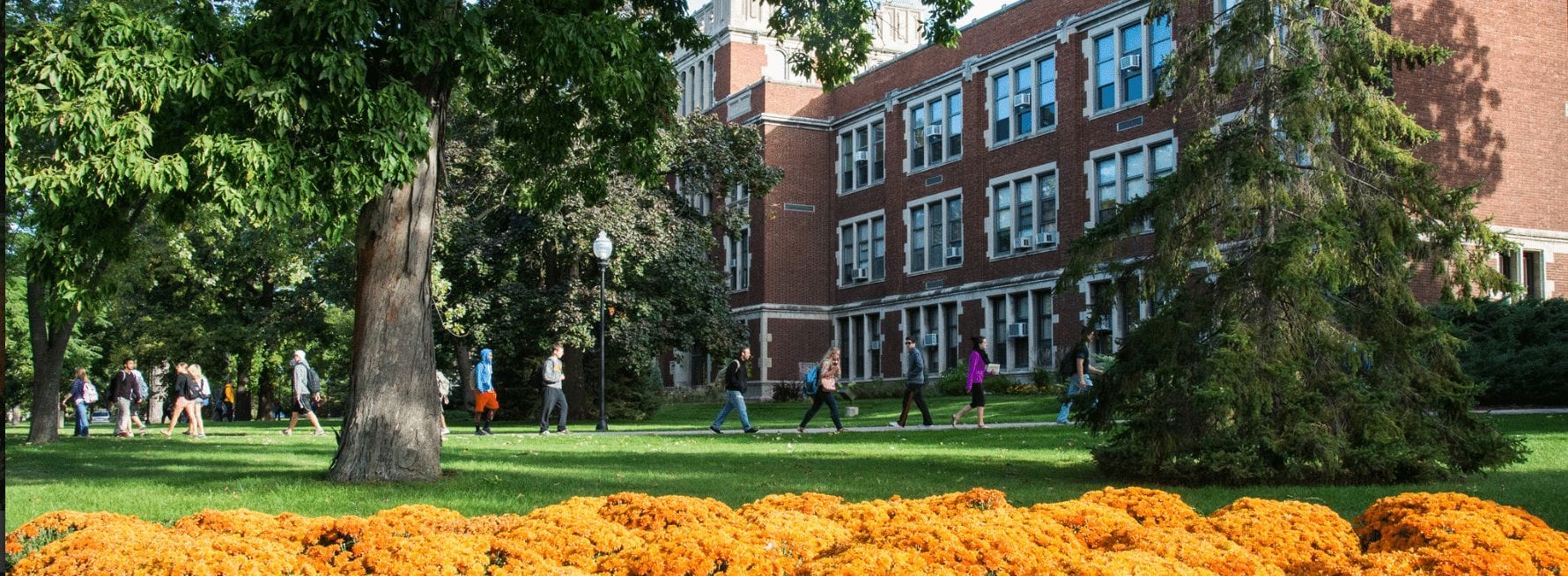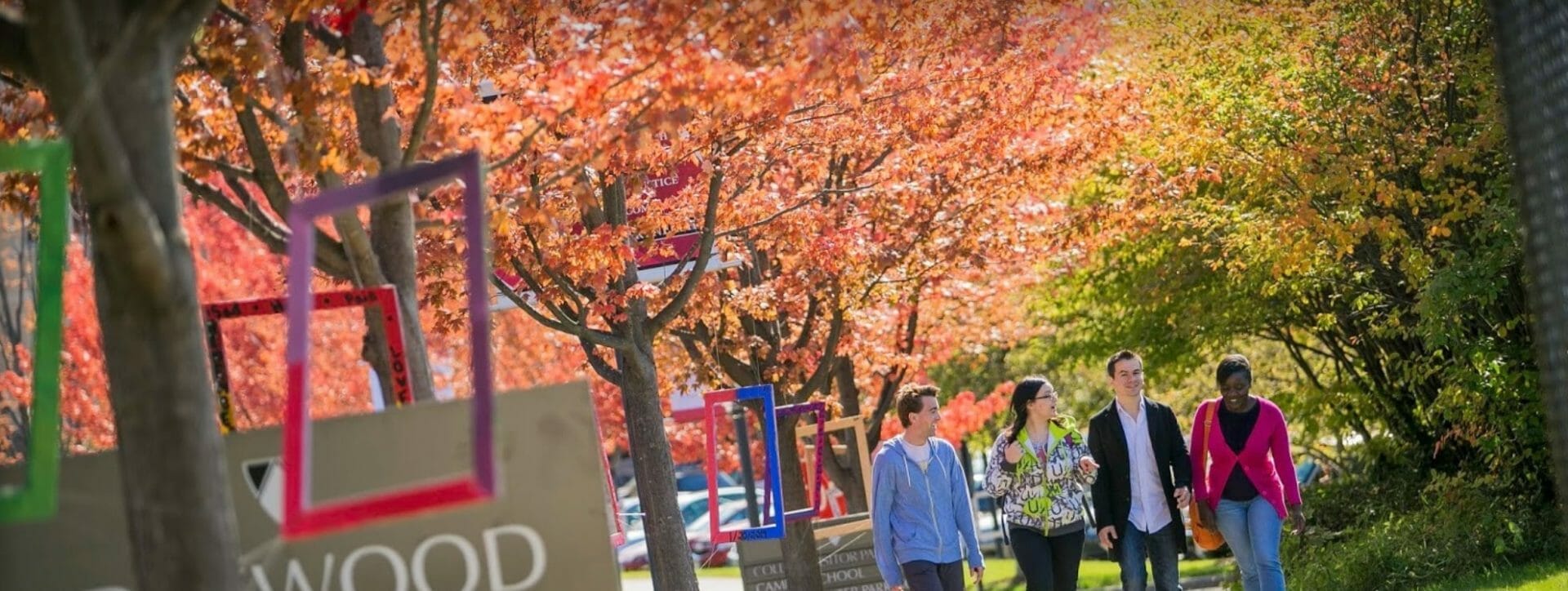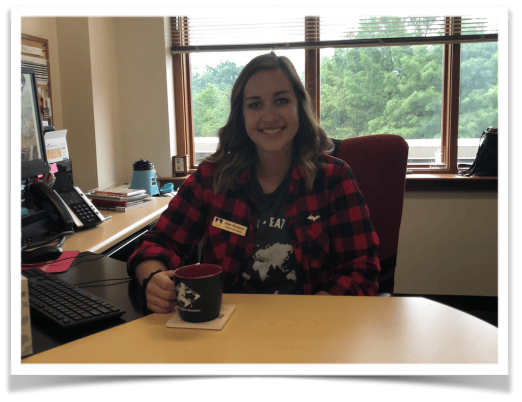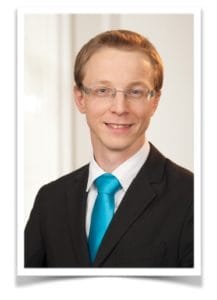
“Anything that’s local is something that I will try and mimic and blend in in order to learn more about a culture.” — Johannes Schmied 🦘

Johannes Schmied is originally from Austria and decided to make a career out of studying abroad after his first trip to the United States at the age of 25.
As the Immigration Compliance and IEM Coordinator at UW—Oshkosh,
Johannes works with students who want to study in the United States without the high ticket price tag associated more urban environments.
If you peruse the infographic you will see that UW – Oshkosh is the perfect environment for an international student looking to save a few pennies.
In this interview we discuss minimalism, adapting to your surroundings, and international admissions.
“Collect moments, not things.” — Dany Dover
Johanne’s book recommendation:
The Minimalist Mindset by Danny Dover
Learn more about University of Wisconsin – Oshkosh in the links below:
- Oshkosh is a safe Small City (66,000) in the Midwest of the U.S.
- UW OSHKOSH – VIDEO channel
- Choose from almost 200 undergraduate majors, minors and emphasis! or check out our master’s, doctoral and post-graduate certificate programs.
- Scholarships: scholarships for undergraduate students, scholarships for graduate students, or scholarships for Intensive English Program students.
- Great IntensiveEnglish Program (for students who do not meet the English requirement for Undergraduate admission: TOEFL <71 or IELTS <6.0)
- UW Oshkosh Application Steps for international students or contact UWO Admission directly: applyworldwide@uwosh.edu
- For Immigration related questions please contact Johannes Schmied: iss@uwosh.edu
![]()
Full Interview Transcript
Johannes Schmied
University of Wisconsin – Oshkosh
Chris: Hello, everyone. This is Chris again. Welcome to another episode of the Study Abroadcast. I’m here with Johannes Schmied who does study abroad for the University of Wisconsin – Oshkosh, and who is actually from Austria and has quite a bit of experience. So, Johannes, welcome to the show. Thank you for being here. I was wondering if you could just maybe give a little bit of your background and what brought you here today, what got you into study abroad and why you kept doing it. And we’ll go from there.
Johannes: Sounds good, Chris. As you said, my name is Johannes and I’m originally from Austria. I studied abroad in the United States quite a while ago while I was a college student back in my home country. I was just studying for one year abroad and I really liked everything about my time being abroad. It changed my career focus quite a bit so once I graduated, I moved to the United States. I started working with international students and I’m actually helping international students coming to America. That’s my passion, supporting international students studying abroad in the United States. But students can go studying abroad in any country and, to me, this has changed my whole life. That’s why I’m really passionate about talking about studying abroad.
Chris: How old were you when you first left, when you did your first trip from Austria?
Johannes: I was 25 when I was studying abroad in America, but most students might be much younger, especially Americans. When they study abroad, they go as freshmen or sophomores. There are quite a few students who study abroad during high school so any age is essentially possible. The younger the better I would say just because it’s easier to pick up a language if you’re younger.
Chris: Ok, and maybe talk a little bit about the University of Wisconsin – Oshkosh. How did you land there and if I was a student living abroad, why would I come to the University of Wisconsin – Oshkosh? What’s good about that school?
Johannes: Ok, our university has quite a few majors and we have international students from all across the world. And those students who come to us, they want to live in a smaller town, not big as like Chicago or east of west coast expensive cities. Our city is only 60,000 people and our university has just over 10,000 students. We have quite a few programs that are quite prestigious. For example, our nursing program is very well known in Wisconsin and the students who graduate from here are very likely to have a job right away when they graduate. Our MBA program, our masters program in business, is something that international students are seeking out, but also the undergraduate programs on the business side. All of this can be found on our web page. You just look for the University of Wisconsin – Oshkosh and if international students are interested in studying abroad for a semester, a year, or a full degree in America, or at any specific university, they just have to look for the international office or an email that guides them on what they need to do to apply to a university or to our specific university. Just look for admissions to any specific university. Every university has specific criteria they need to fulfill so that you can study abroad or study at the specific school.
Chris: So it’s up to the student to contact you and make sure they’re admitted, right.
Johannes: Yeah and there are many ways how universities reach out to students, as well. Sometimes, we get tours to our campus, groups from Germany, groups from China, groups from South Korea to get to know our campus. But then there are also international recruiters who go to any country in the world to meet up with students in their home country. You can go to a study abroad fair in your home country and meet with international admissions folks from a variety of universities from a variety of countries. I would think that most countries have some kind of study abroad fair in their home country and those are often organized by private companies. So it’s one major way how international students come to a different country, just going to a study abroad fair. Nowadays, it’s also often word of mouth. We have a university student from Pakistan here and he tells his family and his friends back home this is a great place, come here. Then he shares our email, how students could contact us to go through the process of getting admitted to our university. Once students are admitted to the university, the next step would be what they need in order to get their visa to enter the country the student is admitted to.
Chris: Right. And so once they’re admitted I always like to talk about, to ask everyone if there’s some different little piece of advice as far as scholarships go and funding the study abroad. You’re obviously going to want to apply for scholarships when you do this process. What would you tell a student when they’re filling out their application or their essay for studying abroad? What would you talk about in your essay that may separate you from everyone else so you can get scholarships to study abroad?
Johannes: That depends completely on the scholarship the student is applying to. I can only refer to the scholarship our university is offering to international students. They have to complete an essay explaining why they would want to study abroad, what impacts they plan to make when they return home. So every essay might be a little different. I might not be the best person to talk generally about how to apply for scholarships. There are many places that students can apply, but you might need to talk to an expert about scholarships. Every university has some scholarships – at least that’s my assumption – and there might be different criteria for different scholarships you apply for. You might have to write several essays.
Chris: Right. What would you tell a student who’s sitting in your office and they’re on the bubble about studying abroad – I don’t really know if I should do it. We could sit and talk probably an hour about why you should do it, but what’s the reason? Is it to put on your resume, or is it for the experience, is it for the memories? What would you tell a student? What’s your number one reason why someone should study abroad?
Johannes: My personal reason was just I wanted to challenge myself, to improve my foreign language skills. I didn’t speak good English at that point when I applied to study abroad. So this was my personal reason – I wanted to challenge myself. But now that I look back at my study abroad experience and talk to other colleagues, studying abroad is spending a significant amount of time abroad. It’s just the best kind of education because you live in another country and you’re just immersed in a new environment where you have to kind of struggle through. Every day is so exciting because there are so many new things going on that you will never have problems falling asleep because you will always be so tired. And you’ll be all excited for the next day. It’s really a humbling experience to study abroad and spend a few weeks, or a few months, or a few years in a different country. It’s just a lifetime experience and I have not met students who didn’t want to talk about their experience afterward. It’s just something that really broadens one’s horizons to the world, especially to Americans. It’s such a big country, the United States, so sometimes it feels like it isn’t even necessary to go outside to see the world. But, there’s so much more to the world than the United States so I encourage anybody to spend time abroad, doesn’t matter what country you’re from. And if you look into scholarships early enough, it wouldn’t necessarily have to cost more than studying in your home country.
Chris: That’s a good answer. So now I’ve got a few rapid fire questions for you and if you get stuck on them, don’t worry. We can come back to them. You’re obviously very well travelled. Is there one epic travel story you can tell us – maybe something you’d tell at a dinner party, something funny about your travel experiences?
Johannes: There are funny stories and then there are stories of being out of your comfort zone. I’d like to share those because those are the ones I remember best.
Chris: Yes, by all means.
Johannes: There was one time when I was studying in my home country and one of my friends from Slovenia called me up and said, “I’m going in two days to Tunisia. Can you come along? The flight will be cheap.” I had nothing really going on because of the summer so I decided, yes, I’ll come along and I found myself in a country I had never been to. I had not researched much about it, I realized I don’t speak Arabic, I realized I also don’t speak French which was the second language there and I was dependent on two people. One was one of my best friends who spoke Slovenian and a bit of German and English, and the other person I didn’t know at all and he only spoke some English and I spoke some English. We were just traveling through Tunisia for one week on backpacks and there were times where I was completely on my own then because they would either go to bed or would be just talking to each other in their mother language which was Slovenian. It was something I had never experienced before and it was really interesting getting to meet the people from Tunisia, getting invited by families in their houses, spending time in their environment and seeing how people in different countries live differently. And what kind of food people eat. It was just a real eye-opening week for me. I was very tired and I was struggling during this week, but it’s something that I will always remember.
And I will always bring this up as a story because this is what made me curious to go to other countries. So that’s my story.
Chris: That’s good. Eating – I think that’s half of it. The most exciting part about traveling for me is the food. Not only what you’re eating, but when you’re eating and how long you’re eating for. It’s different everywhere. It’s interesting that you had to experience that, especially with the language barriers, too. If you have a book recommendation for everyone listening, is there something that you recommend for a good read?
Johannes: I have something that I find really an interesting concept. The book is called Minimalism – Live a Meaningful Life and it just talks about kind of cutting down on the stuff, on the materialistic things many people all around the world nowadays are drawn to. Trying not to own too many items and just trying to focus on the things that are really important to yourself. And that also plays along well with studying abroad because when you study abroad you cannot bring many things. You only have one suitcase or maybe two. You only bring the most important things. Living life in a minimalistic way and only focusing on the things that are really important to your life is a really interesting concept to me and, therefore, that is a really interesting book that’s called Minimalism.
Chris: Minimalism. Ok, I’ll put that in the link and maybe people can check it out. And then, the next question is about food – your favorite food from back home and your favorite food from traveling abroad. What is it?
Johannes: My favorite food from back home in Austria – I grew up in a rural area and our most important, the biggest, meal for me was a cold Austrian dinner which is just a multi-grain dark bread with butter and different kinds of spreads on top, or tomatoes, or pickles, different kinds of cheeses. You would just have this with family and friends, and you would sit at the dinner table for an hour and a half or two hours. So this is my food from back home. But nowadays when I travel, anything that is local, anything that people in the area I’m in are eating or drinking. If I go to Turkey, I might have a coffee. If I go to America, I might have a burger. If I go to Scandinavia, I might bicycle around. Anything that’s local that people do is something that I’m trying to mimic and trying to blend in. I’m trying to learn why they do these things and why they like them. That applies to food and it can apply to many other things. So I don’t have one specific food in my travel places. Every country has something new.
Chris: You just want to blend in with the environment and have whatever they’re known for.
Johannes: Yeah.
Chris: Then, when you walk into a bar – what will your order, what do you have when you walk into a bar?
Johannes: That again depends on what the locals do. Each place has their own specialty. I have to bring up Tunisia again because this was such an interesting place for me. We went to a bar there.
Chris: Sure, yeah.
Johannes: You could have any kind of drink, but they were different from European bars because you did not get alcoholic drinks. It was just the same as in North America or in Europe, but the drinks were just not with alcohol. It was the same thing, just without the craziness that happens when people are not sober. So no specific drink, just whatever the locals drink and that might be every bar had no specific drink.
Chris: Ok, I didn’t know that about Tunisia. Then, do you have a favorite quote, your favorite quote off the top of your head?
Johannes: Making connection to the book I recommended, the quote would be, “Collect moments, not things.” Focus only on the things that are important to you. Collect the moments, not stuff.
Chris: Right! Ok, perfect. Those are all the questions I have. Do you have anything else you want to add?
Johannes: No. As I already said, I would suggest anybody to study abroad and try to do it before you are bound down by family, or a marriage, or children. The younger you travel abroad, the easier you like it or the easier it is for you to learn the language. And the less worries you have about things that could go wrong. So I encourage everybody to travel abroad, study abroad.
Chris: Thank you very much, Johannes. We’ll put a link to his book and maybe get a little more on Tunisia when I post everything. Thank you very much and, everyone, you can follow us on Facebook, Twitter, Snapchat, it’s all on the website. So go ahead and do it there for new interviews when they come out. Thank you very much and we’ll see you on the next episode.
7 Unique Facts About UW – Oshkosh [Infographic]
